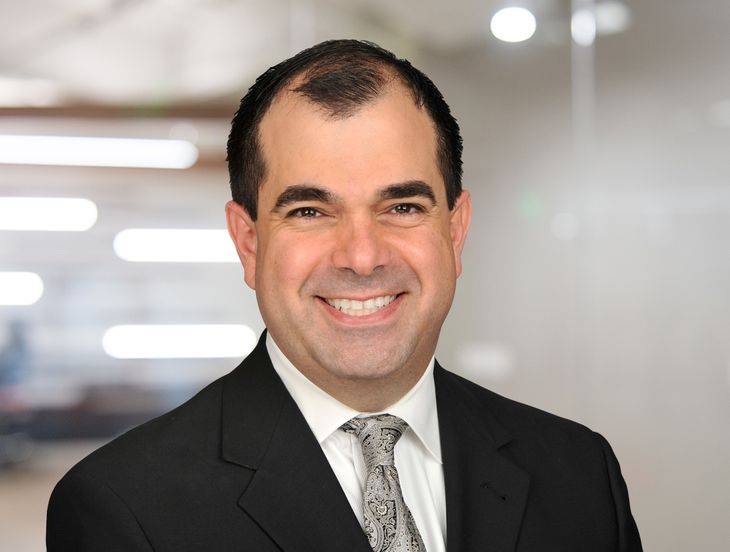California Mandates COVID-19 Vaccine for Healthcare Workers
Insights
8.06.21
After announcing last week that healthcare workers (and state employees) will soon be required to either provide proof of vaccination or submit to weekly or bi-weekly COVID-19 testing, California issued an additional order yesterday implementing a vaccine mandate for healthcare workers. There are some important distinctions in the order that result in coverage in somewhat unexpected ways, so you will want to familiarize yourself with the contours of this new requirement as soon as possible. What do California employers need to know about this latest development?
Vaccinations Required for Workers in Healthcare Facilities
Per the California Department of Public Health (CDPH) Order issued on August 5, workers who provide services in or have the potential for direct or indirect exposure to patients in hospitals, skilled nursing facilities, and other healthcare facilities will now be required to have their first dose of a one-dose vaccine (such as Johnson & Johnson) or their second dose of a two-dose vaccine (such as Pfizer or Moderna) no later than September 30, 2021.
Healthcare facilities covered by the order are encouraged, but not required, to provide onsite vaccinations, easy access to nearby vaccinations, and education and outreach on vaccinations.
Who is Covered Under the Order?
The order applies to certain “healthcare facilities” and “workers.”
Healthcare Facilities:
- General Acute Care Hospitals
- Skilled Nursing Facilities (including Subacute Facilities)
- Intermediate Care Facilities
- Acute Psychiatric Hospitals
- Adult Day Health Care Centers
- Program of All-Inclusive Care for the Elderly (PACE) and PACE Centers
- Ambulatory Surgery Centers
- Chemical Dependency Recovery Hospitals
- Clinics & Doctor Offices (including behavioral health, surgical)
- Congregate Living Health Facilities
- Dialysis Centers
- Hospice Facilities
- Pediatric Day Health and Respite Care Facilities’
- Residential Substance Use Treatment and Mental Health Treatment Facilities
Workers:
Significantly, the Order applies to “workers” not just employees. “Workers” includes all paid and unpaid individuals who work in indoor settings where (1) care is provided to patients, or (2) patients have access for any purpose. This includes workers serving in healthcare or other healthcare settings who have the potential for direct or indirect exposure to patients or COVID-19 airborne aerosols. The Order states that “workers” includes, but is not limited to:
- Nurses, nursing assistants, physicians;
- Technicians, therapists, phlebotomists, pharmacists;
- Students and trainees;
- Contractual staff not employed by the healthcare facility; and
- Persons not directly involved in patient care, but who could be exposed to infectious agents that can be transmitted in the health care setting (e.g., clerical, dietary, environmental services, laundry, security, engineering and facilities management, administrative, billing, and volunteer personnel).
Limited Exceptions for Religious Beliefs and Qualifying Medical Reasons
Workers may seek an exemption from this requirement by providing a declination form signed by the worker stating that they either 1) decline the vaccination based on religious beliefs; or 2) are excused from receiving the COVID-19 vaccine due to “Qualifying Medical Reasons.”
To be eligible for a Qualified Medical Reason exemption, the worker is required to provide a written statement signed by a physician, nurse practitioner, or other licensed medical professional practicing under the license of a physician stating that the worker qualifies for the exemption. The statement should not describe the underlying medical condition or disability but should indicate the probable duration of the worker’s inability to receive the vaccine or whether the duration is unknown or permanent.
Exempt Workers Must be Tested Weekly or Biweekly and Wear a Mask or Respirator
Workers who are granted an exemption must be 1) tested weekly or biweekly for COVID-19; and 2) wear a surgical mask or higher-level NIOSH approved respirator such as an N95 at all times while in the facility. Testing must be done with either Polymerase Chain Reaction (PCR) or antigen tests that have an Emergency Use Authorization (EUA) by the FDA. This is an important note particularly since the CDC recently indicated it will withdraw the request to the FDA for the EUA of the Real-Time RT-PCR Panel. The testing has to be done twice weekly for unvaccinated exempt workers in acute health care and long-term care settings, and once weekly for such workers in all other healthcare settings.
Recordkeeping Requirements
Healthcare facilities subject to the order will be required to maintain records of workers’ vaccination consistent with CDPH’s Vaccine Records & Guidelines guidance along with the following information: 1) full name and date of birth; (2) vaccine manufacturer; and (3) date of vaccine administration (for first dose and, if applicable, second dose). The operator of the facility is required to maintain records of workers’ exempt status, i.e., the signed declination forms (with written healthcare provider statement, if applicable) as well as records of the workers’ test results. These records should be treated and maintained as confidential.
Healthcare facilities are also required to provide the records to the local or state Public Health Officer or their designee promptly upon request, and in any event no later than the next business day after receiving the request.
What About the July 26 Order?
This August 5 order does not replace or supersede the July 26 order issued by the CDPH. The new order specifically states that the July 26 order continues to apply. This means that Healthcare Facilities planning to verify vaccination status of their workers and to periodically test unvaccinated workers beginning on August 9 should continue with these plans to remain in compliance. However, after September 30, testing as an alternative to vaccination no longer appears to be an option for Healthcare Facilities under the new order. Employers must give careful consideration to fair employment laws in determining their response to those who are neither fully vaccinated nor granted an exemption prior to the September 30 deadline imposed in the order.
We will continue to monitor the rapidly developing COVID-19 situation and provide updates as appropriate. Make sure you are subscribed to Fisher Phillips’ Insight System to get the most up-to-date information. Please be sure to contact your Fisher Phillips attorney, the authors of this Insight, or any attorney in our California offices should you have any questions.
Related People
-
- Aymara Ledezma
- Partner
-
- Samantha J. Monsees
- Partner
-
- Hannah Sweiss
- Partner
-
- Lonnie D. Giamela
- Partner



